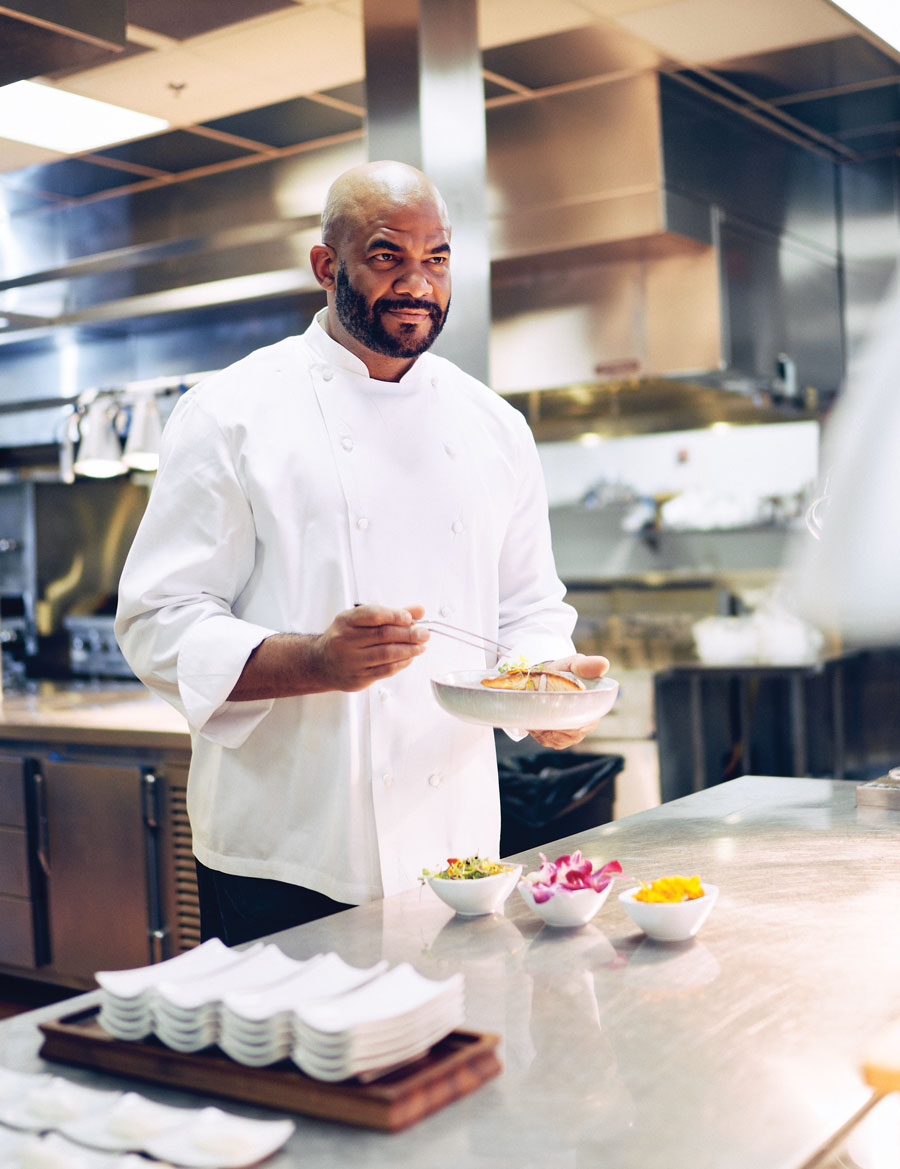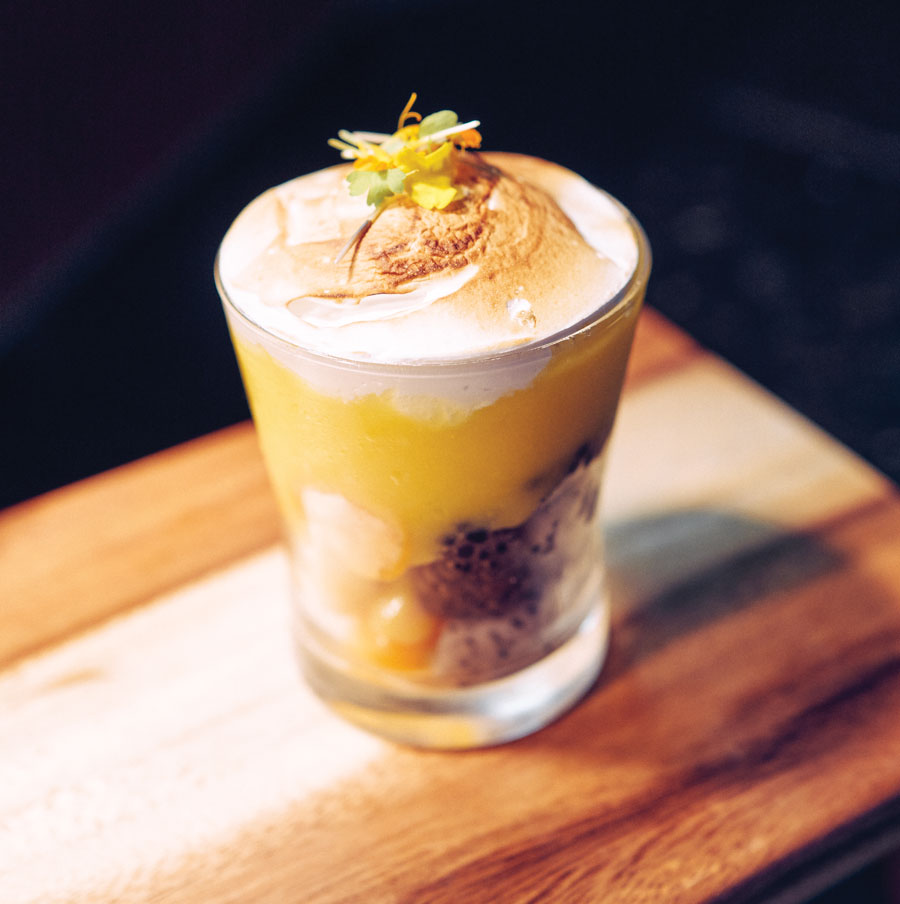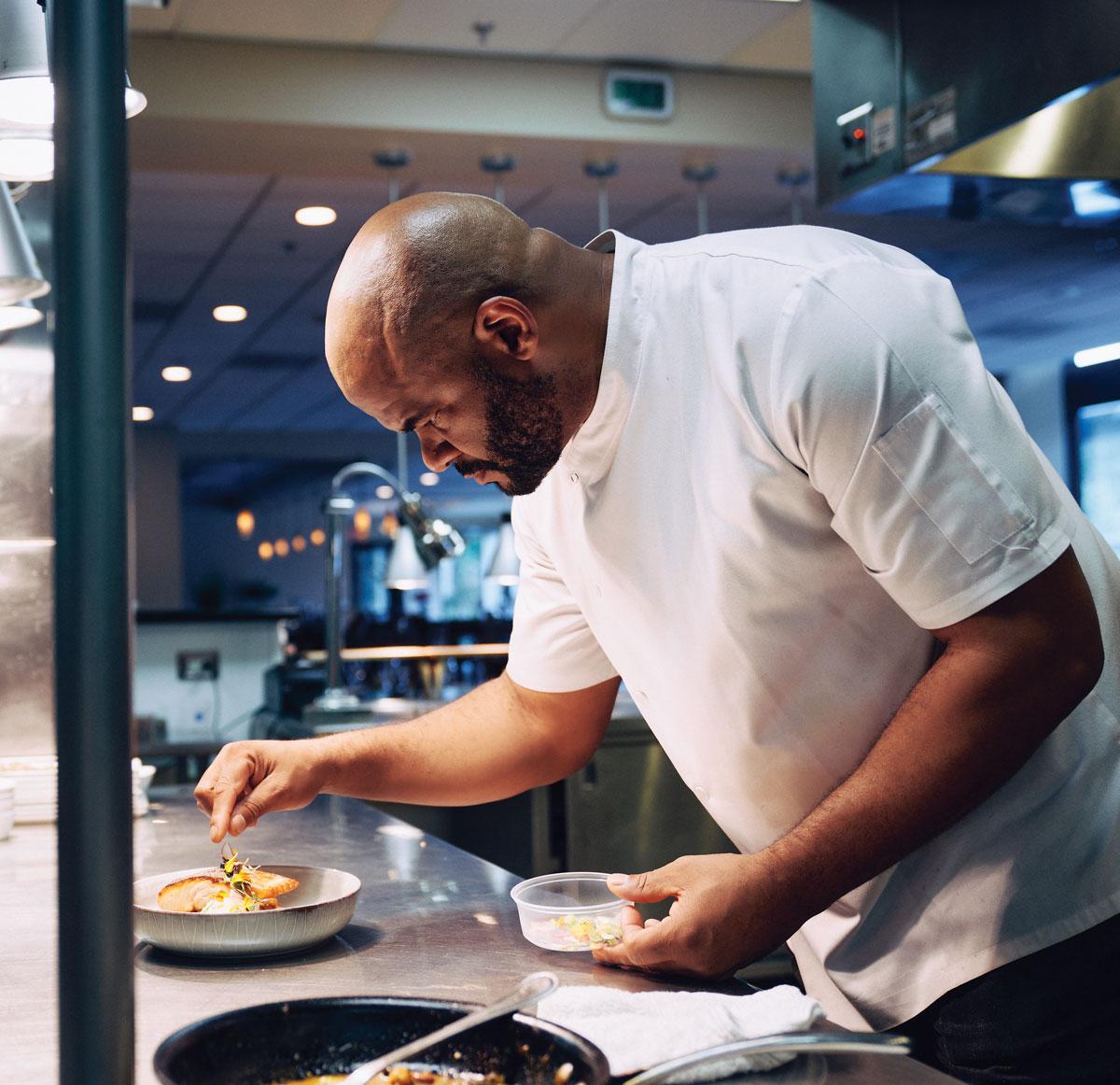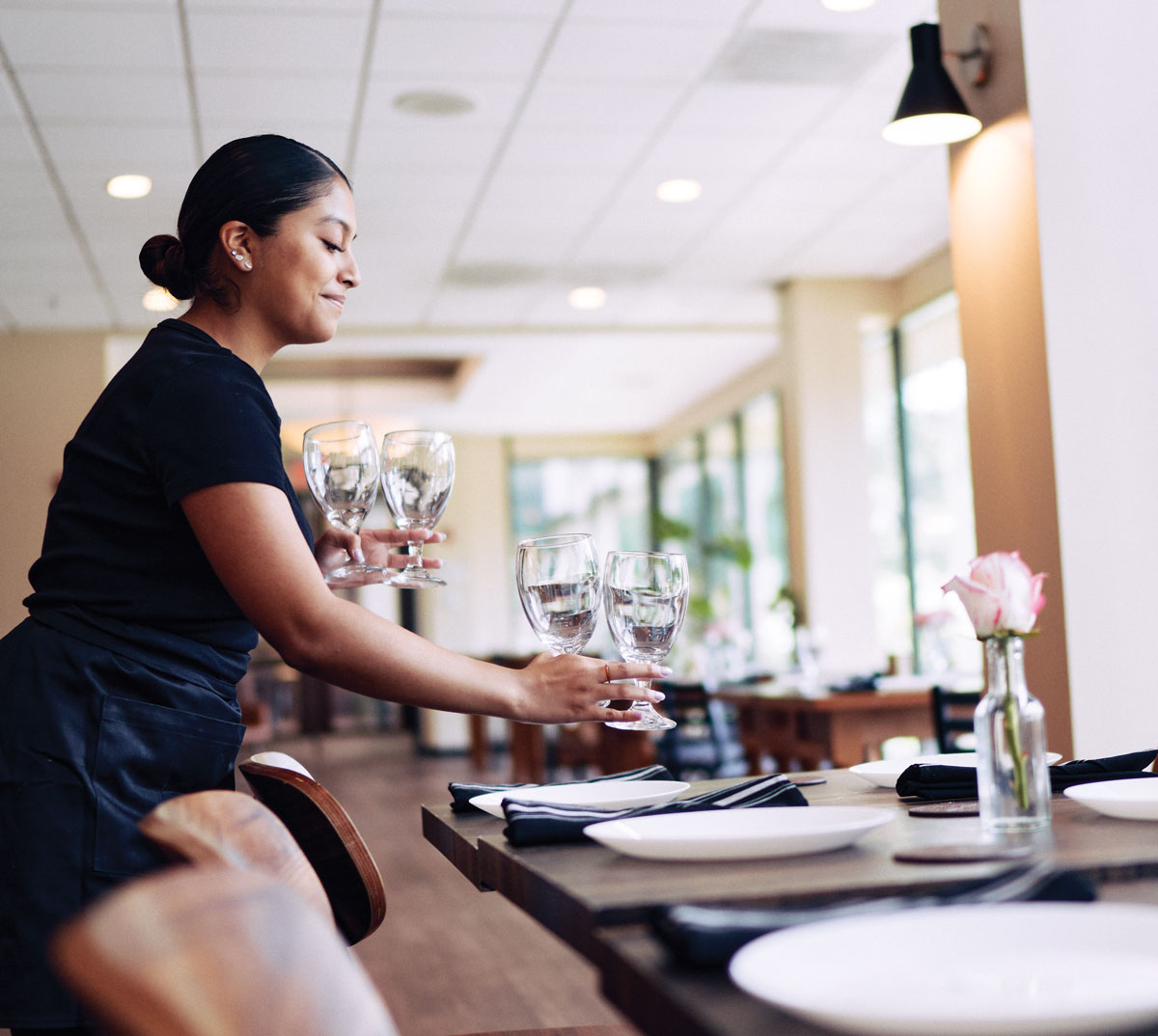
Photograph by Ben Rollins
On a breezy night in June, 18-year-old Ashley Casasola was in a busy kitchen in Tucker, keeping a close eye on the dessert station at a fundraising event sponsored by the Atlanta chapter of Les Dames d’Escoffier International—an organization of women chefs that provides opportunities and scholarships for young cooks and entrepreneurs. As Afrobeats and reggae set the mood, Casasola and other aspiring culinarians prepared a menu inspired by Lowcountry cuisine.
Casasola became interested in cooking at an early age, after visiting family in Guatemala and wanting to learn to replicate their dishes. At Meadowcreek High School in Gwinnett County, she got involved in a culinary education program that has its own bistro—a rare educational opportunity for anyone, and especially for students of color in a working-class community. Part of a team that achieved first place in a high school culinary competition last year, she’s now a freshman at Georgia State University, studying hospitality administration with the help of a scholarship from Les Dames. On the side, Casasola has her own budding desserts business, Pastries by Ashley.

Photograph by Ben Rollins

Photograph by Ben Rollins

Photograph by Ben Rollins
She’s facing a professional landscape that can be challenging for young people trying to break into the business. Cooking is just one skill that chefs need: Budgeting, time management, and building relationships with vendors are also necessary—especially for those who want to lead a kitchen or have their own business. But culinary students often don’t get the chance to build those skills until after they graduate. “The traditional culinary school will have a ratio of 16 to 1, and students will maybe work on one dish, and they’ll stand in line to give that dish to the instructor, and they’ll get a grade, and they’re done for the day,” says Atlanta chef Daryl Shular. “They’ll do that for two years and walk away with $40,000 in student-loan debt. Then, they’re expected to walk into the industry day-one ready.”
Shular wants to expand the tools that aspiring chefs have when they enter the workforce—and to funnel a more diverse roster of pros into the industry. In 2019, he founded the Shular Institute, an educational program designed for those who have either been to culinary school or are, like Casasola, studying hospitality and culinary arts at a degree-conferring university. Located in an office park in Tucker, the institute aims to keep costs to students low through grants and scholarships. It also provides them with real-world training as part of the regular curriculum—at Farmed Kitchen + Bar, a stylish on-site restaurant that serves seasonally oriented dishes like field-pea hummus and a coriander-spiked beef bowl with corn noodles, okra, and chard.
“Chef Shular gives you a chance to problem-solve, which you have to do in a real kitchen because people are waiting on you,” said Casasola at the Les Dames event in June; she’s currently an apprentice in the restaurant focused on pastry. In addition to cooking, students at Farmed do the logistical work of restaurant management, seating patrons, and waiting tables. “They’re facing customers, feeling the pressure of the ticket machine, and they’re being forced to strategize, innovate, and communicate,” Shular says. “They’re going to be the Navy SEALs of the hospitality industry.”

Photograph by Ben Rollins
Shular grew up in Auburndale, Florida, where he helped his mother in the kitchen—peeling potatoes, trimming snap peas—and watched as she made coconut cakes to share with neighbors. In 1993, after graduating high school, he moved to Georgia to study cooking at the Art Institute of Atlanta. He spent the next 20 years building his resume, working chef jobs at the Doubletree Hotel and Atlanta Athletic Club and winning a gold medal, in 2008, as part of the American team at the IKA/Culinary Olympics. He also taught, both at his alma mater and at Le Cordon Bleu College of Culinary Arts, where Shular became the director of education for North America.
The jewel in Shular’s crown is his certification as a master chef. He was the first African American chef to attain the distinction, currently held by fewer than a hundred people. Administered by the American Culinary Federation, the master chef exam is famously grueling, spread out over days. “When I took the test, there were 11 of us,” Shular said. “Two of us passed.”
To start his institute, he assembled a team of educators including a former student, Simone Byron. For Byron, cooking is the family trade: Her brother is the food writer Dennis Malcolm Byron, aka Ale Sharpton, and her grandfather was head chef on a cruise ship owned by Marcus Garvey’s Black Star Line. When Ashley Casasola showed up to cook at the fundraiser in June, Byron—who also spearheaded the Meadowcreek culinary program where Casasola got her start—was there to greet each student with a hug.
“In our community, culinary arts is not seen as a lucrative industry. People think it’s just manual labor,” Byron says. “In Europe, being a chef is a highly rewarded occupation, similar to a doctor or a lawyer here in the States. The European stance on culinary arts has had some major influence on men, white men in particular, dominating the industry.” The prevalence of white men at the helm of many professional kitchens can make it difficult for students of color, especially those from working-class backgrounds, to see themselves in the profession. Byron calls these “low-income, high-potential communities”—where students simply need exposure to career options and to see examples of what’s possible. As hospitality employers are seeking more diversity from the top down, she believes that the potential for students from historically excluded populations to advance is high.

Photograph by Ben Rollins
Like Casasola, 19-year-old Evelin Castro Lozano received a Les Dames scholarship. Enrolled as a student apprentice at Shular while studying hospitality administration at Georgia State, she’s the oldest of five children and got her love of cooking from her mother, who worked as a restaurant server to support the family. She wants to open a modern Mexican bistro. “I’ve learned how to do inventory, how to manage a [point of sale] system, minimize food waste,” Castro Lozano says. “Knowing every aspect of a restaurant is really good because then you don’t have to pay someone to tell you how to run your restaurant.”
In addition to her restaurant dreams, Castro Lozano also plans to work to eradicate food deserts. Shular and Byron hope their students will think big. “I want Shular to be among the most prestigious culinary programs in America,” Shular says. “I want it to be the Harvard of culinary schools.”
This article appears in our October 2021 issue.













